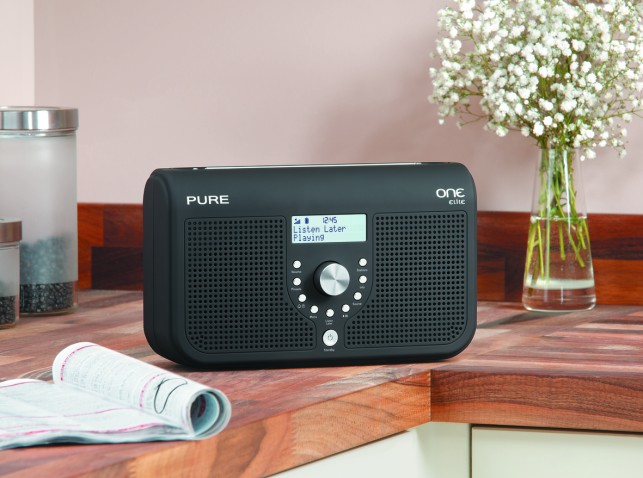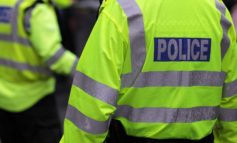The Government has hailed a digital DAB radio test in Bath as a success, with many of the local residents taking part saying that they love digital radio.

Four in five across the trial area preferred the higher quality and would go on to recommend digital radio to other people. Ninety-two percent of listeners in the Go Digital Trial report said they were highly satisfied with their digital radios.
Additional comments in the report explained how the participants in the trial also enjoyed the additional stations they had access to on DAB and how they found the digital radios easy to use.
Residents also said that they would need more information about how to implement digital radio into their cars and felt that the Government should provide additional information about the potential switchover, similar to the information with the digital television switchover.
Older and disabled residents in the experiment found that they did now some assistance from their friends and family to set the radios up.
Tim Moss, owner of Moss of Bath, said: “Moss of Bath was happy to be involved in the Go Digital digital radio pilot and confirms what we know; that listeners love digital radio. As a trusted independent electrical retailer we know that some listeners need more help and this reinforces the role of the trusted independent electrical retailer.”
The controlled digital radio switchover pilot was overseen by the Department of Culture, Media and Sport and was run by independent research company Ipsos/MORI.
It involved the full conversion of 237 households in the Bath area to digital radio and documented their experience over a 6-week period.
The pilot took place in Bath in February and March 2013.
The full report by the Government can be found online here.




2 Comments
electronic_engineer
Monday 17th June, 2013 at 15:31Is this a press release from Digital Radio UK, by any chance? The report is freely available on the internet, so readers can make up their own minds.
Yes – many people believe DAB has better sound, but as the report states this may well have been the novelty of a new radio set: the report makes clear some had accidentally been listening to FM on the new set, and still reported better sound.
The fact is that many DAB stations are in poor quality mono, compared with high quality FM stereo. People believe DAB to be better because of the persistent propaganda about “crystal clear sound’. If those listening to radio on their mobile phones using stereo headphones had been asked, the responses might have been very different – except that of course this can’t be tested, because there is not a single mobile phone available with a DAB radio in it.
From the report: ‘I don’t think they work very well – people who do have them in their cars say it fades and is not very good.’
‘I don’t know why they’re doing it, I don’t take in the full extent of what things are on what and what I won’t be able to listen to any more. At the moment I can because the car has LW, I’ll be very angry, that’s all I’ll say.’
‘58% [are] concerned about having to replace current radio equipment, and the cost implications.’
Not quite the same as the quote from Tim Moss: ‘listeners love digital radio’. But then he stands to make a healthy profit from all those listeners who’ll be forced to replace all their radios if switchover happens.
DAB is pushed by those who stand to make money from new radios. They’re expensive, giving a greater profit margin to the retailers, and for every DAB radio compatible with the other (better) European systems, a licence fee must be paid – while FM is free to manufacture. And the UK technology is obsolete: almost every other country has abandoned the system we’re lumbered with in favour of something better.
And DAB is hugely expensive for local transmission – witness all the formerly-local commercial stations which have now turned into national jukeboxes on DAB with no local content. Ofcom has bullied these stations into supporting DAB by refusing to renew their FM licences unless they support the DAB system – this is nothing to do with a market or consumer-driven change.
Internet listening figures are low at the moment, but they are growing far more quickly than for DAB. The internet is the future for digital radio, supported by our existing reliable, cheap FM system. In 10 years’ time, the UK’s obsolete DAB system will be forgotten about, if not in this country then certainly in the rest of the world.
electronic_engineer
Sunday 16th June, 2013 at 13:34Is this a press release from Digital Radio UK, by any chance? The report is freely available on the internet, so readers can make up their own minds.
Yes – many people believe DAB has better sound, but as the report states this may well have been the novelty of a new radio set: the report makes clear some had accidentally been listening to FM on the new set, and still reported better sound.
The fact is that many DAB stations are in poor quality mono, compared with high quality FM stereo. People believe DAB to be better because of the persistent propaganda about “crystal clear sound’. If those listening to radio on their mobile phones using stereo headphones had been asked, the responses might have been very different – except that of course this can’t be tested, because there is not a single mobile phone available with a DAB radio in it.
From the report: ‘I don’t think they work very well – people who do have them in their cars say it fades and is not very good.’
‘I don’t know why they’re doing it, I don’t take in the full extent of what things are on what and what I won’t be able to listen to any more. At the moment I can because the car has LW, I’ll be very angry, that’s all I’ll say.’
‘58% [are] concerned about having to replace current radio equipment, and the cost implications.’
Not quite the same as the quote from Tim Moss: ‘listeners love digital radio’. But then he stands to make a healthy profit from all those listeners who’ll be forced to replace all their radios if switchover happens.
DAB is pushed by those who stand to make money from new radios. They’re expensive, giving a greater profit margin to the retailers, and for every DAB radio compatible with the other (better) European systems, a licence fee must be paid – while FM is free to manufacture. And the UK technology is obsolete: almost every other country has abandoned the system we’re lumbered with in favour of something better.
And DAB is hugely expensive for local transmission – witness all the formerly-local commercial stations which have now turned into national jukeboxes on DAB with no local content. Ofcom has bullied these stations into supporting DAB by refusing to renew their FM licences unless they support the DAB system – this is nothing to do with a market or consumer-driven change.
Internet listening figures are low at the moment, but they are growing far more quickly than for DAB. The internet is the future for digital radio, supported by our existing reliable, cheap FM system. In 10 years’ time, the UK’s obsolete DAB system will be forgotten about, if not in this country then certainly in the rest of the world.